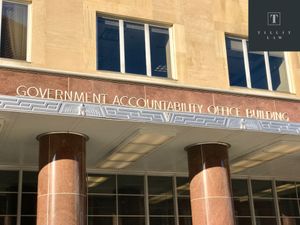The Competition in Contracting Act (CICA) governs competition in federal contracting and is designed to guarantee full and open competition amongst competing offerors. Although the federal government generally prefers full and open competition, certain contracts are awarded on a sole-source basis without going through the standard competitive process. Such sole-source contracts may be of particular interest to specialized or small business contractors. The Federal Acquisition Regulation (FAR) provides seven limited exceptions to full and open competition listed in FAR subsections 6.302-1 through 6.302-7. Even if one of these exceptions is applicable, the FAR requires contracting officers to solicit offers from as many potential sources as practicable under the circumstances.
The sole-source exception to full and open competition is provided in FAR 6.302-1 and applies in situations where only one responsible source exists to satisfy agency requirements. Sole-source decisions must be supported with written justifications and approvals. Notably, the government may not issue sole-source awards due to a lack of advance planning or concerns relating to the expiration of appropriated funds. Pursuant to FAR 5.201, contracting officers are also required to publish notifications of sole-source solicitations, giving prospective contractors interested in such procurements an opportunity to respond. FAR 6.302-1 outlines three specific scenarios in which contracting officers are permitted to conduct procurements on a sole-source basis.
Unsolicited Research Proposals
The FAR permits contracting officers to consider supplies or services available from a single source when a prospective contractor submits an unsolicited research proposal. The unsolicited research proposal, however, must meet specific requirements:
- Firstly, the unsolicited research proposal must demonstrate a unique and innovative concept. Alternatively, the proposal must demonstrate that the prospective sole-source contractor has unique capabilities to provide the research services.
- Furthermore, the unsolicited research proposal must not offer a concept or service otherwise available to the government.
- Finally, the unsolicited research proposal must not resemble a pending competitive acquisition.
Contracts Involving Major Systems or Highly Specialized Equipment
The FAR permits contracting officers to acquire products from the original source on a sole-source basis under follow-on contracts that involve the continued development or production of a major system or highly specialized equipment. This includes follow-on contracts for critical components of the major systems or highly specialized equipment. Additionally, contracting officers must make the determination that not awarding the follow-on contract on a sole-source basis would result in:
- The government incurring substantially duplicated acquisition costs that could not reasonably be recovered through savings achieved by competing the requirement on a full and open basis.
- The government suffering unacceptable delays in fulfilling its requirements.
Defense Contracts Involving Highly Specialized Services
For acquiring highly specialized services under DoD, NASA, and Coast Guard projects, the FAR permits contracting officers to consider sole-source acquisition from the original source, including follow-on contracts. Similar to contracts for products discussed above, contracting officers must make the determination that not awarding the follow-on contract on a sole-source basis would lead to:
- The government incurring substantially duplicated acquisition costs that could not reasonably be recovered through savings achieved by competing the requirement on a full and open basis.
- The government suffering unacceptable delays in fulfilling its requirements.
While full and open competition remains the cornerstone of federal contracting, there are situations where sole-source procurements are necessary and appropriate. Such situations may involve unsolicited research proposals or the government's necessity to acquire highly specialized equipment or services on short notice. Furthermore, FAR 6.302–1 provides a list of scenarios where sole-source procurements may be appropriate. For instance, sole-source procurements may be necessary due to limited data rights, patent restrictions, copyright issues, or to meet certain procurement objectives. By understanding the requirements for sole-source contracting along with the exceptions outlined in FAR 6.302–1, prospective contractors can position themselves to identify and pursue potential sole-source opportunities that align with their offerings or protest improper sole-source awards, such as those based upon the government's lack of advanced planning.
This Federal Procurement Insight is provided as a general summary of the applicable law in the practice area and does not constitute legal advice. Contractors wishing to learn more are encouraged to consult the TILLIT LAW PLLC Client Portal or Contact Us to determine how the law would apply in a specific situation.





